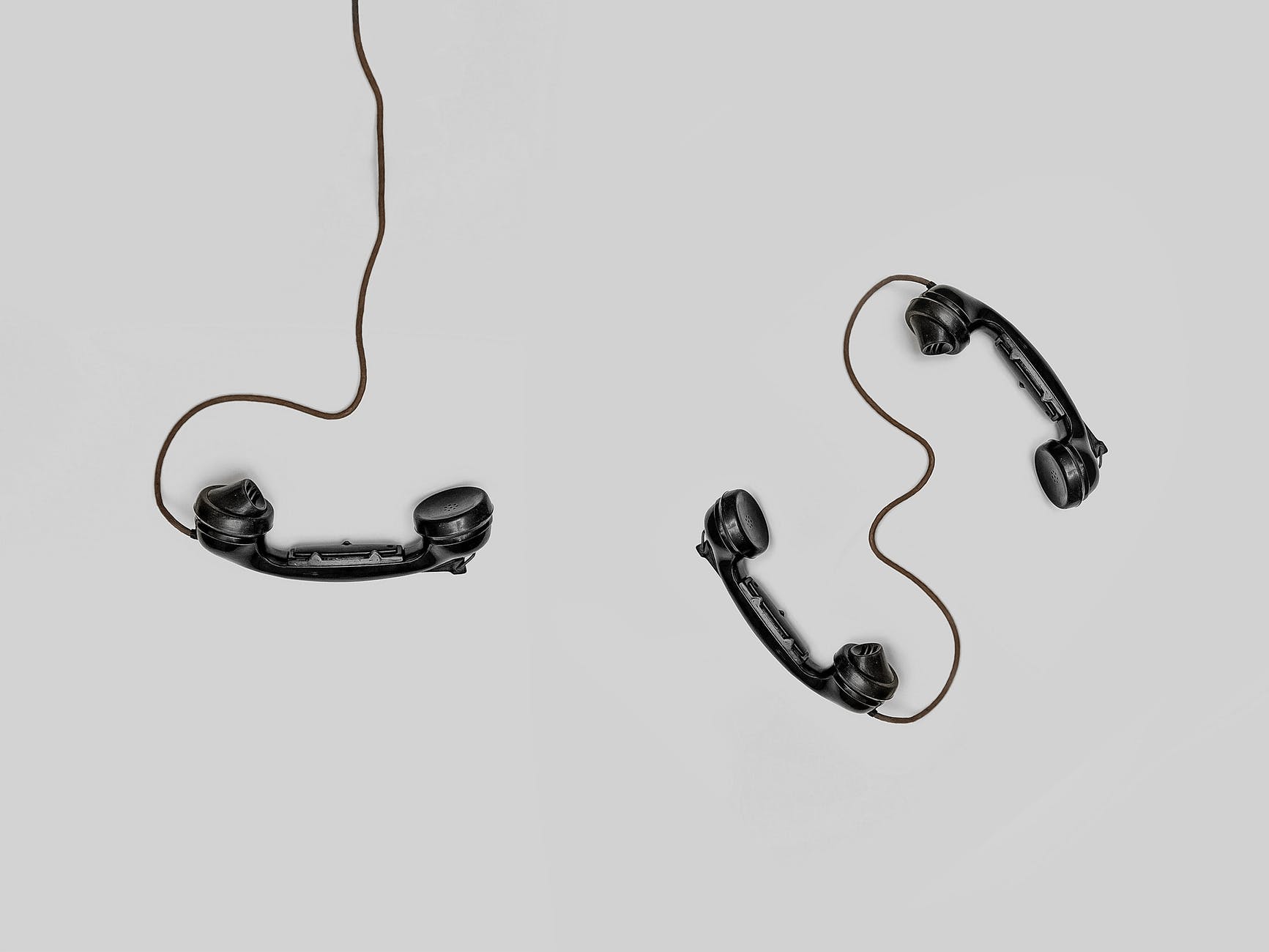
Rhode Island Recording Law Summary: 
Last Updated: January 2025 | Verified against current R.I. Gen. Laws § 11-35-21
Quick Answer
Rhode Island is a one-party consent state. You can legally record phone calls and in-person conversations as long as you’re a party to the conversation or have consent from at least one participant. Recording cannot be done for the purpose of committing criminal or tortious acts. Violating Rhode Island’s wiretapping laws is a felony punishable by up to 5 years imprisonment.
| Key Point | Answer |
|---|---|
| Consent Type | One-Party |
| Can you record your own calls? | Yes |
| Must you inform others? | No |
| Primary Statute | R.I. Gen. Laws § 11-35-21 |
| Criminal Penalty | Felony (up to 5 years) |
| Civil Damages | $100/day or $1,000 minimum |
Our recommended Digital Voice Recorder.
Understanding Rhode Island’s Recording Laws
The Legal Foundation
Rhode Island’s wiretapping and electronic surveillance laws are found in Title 11, Chapter 35 of the Rhode Island General Laws. The key statute is:
- R.I. Gen. Laws § 11-35-21 – Unauthorized interception, disclosure or use of wire, electronic, or oral communication
Under this statute, it’s illegal to willfully intercept wire, electronic, or oral communications without consent. However, recording is legal when you’re a party to the communication or when one party has given prior consent.
What Communications Are Covered
Rhode Island’s recording law applies to:
- Wire communications – Phone calls, including cell phones and VoIP
- Oral communications – In-person conversations
- Electronic communications – Text messages, emails, video calls
One-Party vs. Two-Party Consent Explained
In a one-party consent state like Rhode Island, only one person in the conversation needs to know about and consent to the recording. That person can be you. You don’t need to announce “this call is being recorded” or get anyone else’s permission.
In contrast, two-party (or all-party) consent states like neighboring Massachusetts and Connecticut require everyone in the conversation to agree to be recorded.
Recording Phone Calls in Rhode Island

Can You Record Phone Calls in Rhode Island?
Yes. Under R.I. Gen. Laws § 11-35-21, you can record any phone call you’re participating in without informing the other party, as long as it’s not for criminal or tortious purposes. This applies to:
- Landline calls
- Cell phone calls
- VoIP calls (Zoom, Teams, Google Meet, etc.)
- Video calls
Recording Calls Across State Lines
If you’re in Rhode Island calling someone in a two-party consent state, the stricter law typically applies. This is particularly important for Rhode Island residents since neighboring states have stricter requirements:
- Massachusetts (nearby) – Two-party consent
- Connecticut (nearby) – Two-party consent
- California
- Florida
- Illinois
- Maryland
- Montana
- Nevada (for phone calls)
- New Hampshire
- Pennsylvania
- Washington
Best practice: When calling people in two-party consent states, especially Massachusetts and Connecticut, either inform them or get explicit consent to be safe.
Business Call Recording
Rhode Island businesses can record calls for quality assurance, training, or compliance. While not legally required, many businesses choose to provide notice. Consent can be obtained through:
- Verbal consent before the call begins
- A recorded announcement (“This call may be recorded…”)
- A periodic beep tone during the call
Recording In-Person Conversations
When Is It Legal?
You can record in-person conversations in Rhode Island when:
- You’re participating in the conversation
- You’re in a public place where there’s no reasonable expectation of privacy
- You have consent from at least one party (which can be yourself)
- The recording is not for criminal or tortious purposes
The Criminal/Tortious Purpose Exception
Even with one-party consent, Rhode Island’s statute explicitly prohibits recording that is done for the purpose of committing any criminal or tortious act. This means you cannot record:
- For purposes of blackmail or extortion
- To facilitate harassment or stalking
- To commit fraud or theft
- To tortiously interfere with business relationships
When Is It Illegal?
Recording is illegal in Rhode Island when:
- You’re not a party to the conversation and don’t have consent
- Recording is for criminal or tortious purposes
- Recording in areas with reasonable expectation of privacy (bathrooms, changing rooms)
- You’re disclosing or using illegally obtained recordings
What About Recording in Your Own Home?
You can record conversations in your own home if you’re participating. However, you cannot:
- Plant a hidden device and leave to record others without being present
- Record guests in areas with privacy expectations (bathrooms, guest bedrooms)
- Record intimate activities without consent
Rhode Island Video Recording Laws

Public Spaces
Rhode Island has no general prohibition on video recording in public spaces. You can:
- Film on public streets, parks, and sidewalks
- Record public meetings and government proceedings
- Use dashcams in your vehicle
- Film public protests or demonstrations
Private Property and Privacy
On private property, the property owner sets the rules. Rhode Island also has laws that prohibit:
- Video voyeurism (R.I. Gen. Laws § 11-64-2)
- Recording someone in a location where they have a reasonable expectation of privacy
- Non-consensual distribution of intimate images
If you are recording someone’s likeness for business purposes, you should ensure that you gain proper consent by having them fill out a photo or video consent form.
Recording in the Workplace
Can Your Employer Record You?
Rhode Island employers can generally record in common work areas where employees don’t have a privacy expectation. However, employers cannot record in:
- Bathrooms
- Locker rooms
- Changing areas
Can You Record Your Employer?
Yes. As a one-party consent state, you can record conversations with your boss, HR, coworkers, or anyone else at work – as long as you’re part of the conversation. This can be valuable for:
- Documenting harassment or discrimination
- Recording performance reviews
- Protecting yourself in disputes
- Preserving important instructions
Caution: Your employer may have policies against recording. While recording is legal under Rhode Island law, violating company policy could result in termination.
Recording Police and Government Officials
Can You Record Police Officers in Rhode Island?
Yes. The First Amendment protects your right to record law enforcement officers performing their duties in public. In Rhode Island, you can:
- Film traffic stops (including your own)
- Record arrests happening in public
- Document interactions with police
- Livestream encounters
Important limitations:
- Don’t interfere with police operations
- Don’t trespass to get a better angle
- Follow lawful orders to step back (within reason)
- Don’t obstruct the officer’s duties
Recording Government Meetings
Rhode Island’s Open Meetings Act (R.I. Gen. Laws § 42-46) requires most government meetings to be open to the public. Recording of public meetings is generally permitted. You can record:
- City and town council meetings
- School committee meetings
- State legislative proceedings
- Public hearings
Specific Situations
Can I Record My Landlord in Rhode Island?
Yes, if you’re part of the conversation. Recording interactions with landlords can help document:
- Verbal agreements about repairs
- Harassment or illegal entry
- Disputes about lease terms
- Evidence for tenant rights cases
Can I Record My Doctor in Rhode Island?
Yes, you can record medical appointments you attend. This can be helpful for:
- Remembering complex medical instructions
- Documenting informed consent discussions
- Having a record of diagnoses
- Sharing information with family caregivers
Can I Record DHS Workers?
Yes. Department of Children, Youth and Families (DCYF) and other government agency workers can be recorded during your conversations with them as long as you’re participating.
Can I Record My Ex-Spouse or Co-Parent?
Yes, during conversations you’re part of. This is common in custody disputes. However:
- Don’t record your children’s private conversations without being present
- Don’t use children to secretly record the other parent
- Don’t use recordings for harassment purposes (this could violate the criminal/tortious purpose exception)
- Consider how recordings may be viewed by Rhode Island Family Court
Can I Use a Dashcam in Rhode Island?
Yes. Dashcams are legal in Rhode Island. There are no specific laws restricting their use, but you should:
- Mount the camera so it doesn’t obstruct your view
- Be aware that audio recording follows one-party consent rules
- Check if your insurance offers dashcam discounts
Using Recordings as Evidence in Rhode Island
Are Recordings Admissible in Court?
Recordings made legally under Rhode Island’s one-party consent law are generally admissible as evidence. However, courts may consider:
- Authentication – Can you prove the recording is genuine and unaltered?
- Relevance – Does the recording matter to the case?
- Hearsay rules – Some statements may be excluded
- Prejudicial vs. probative value – Does it unfairly influence the jury?
Criminal Cases vs. Civil Cases
- Criminal cases: Illegally obtained recordings are typically inadmissible and may result in criminal charges against you
- Civil cases: Rules can be more flexible, but illegally obtained evidence may still be excluded
Penalties for Illegal Recording in Rhode Island

Criminal Penalties (R.I. Gen. Laws § 11-35-21)
Violating Rhode Island’s wiretapping laws is a felony offense.
| Offense | Classification | Potential Penalty |
|---|---|---|
| Illegal interception | Felony | Up to 5 years imprisonment |
| Disclosing intercepted communications | Felony | Up to 5 years imprisonment |
| Using illegally obtained communications | Felony | Up to 5 years imprisonment |
Civil Liability
Victims of illegal recording in Rhode Island may sue for:
- Actual damages
- Liquidated damages of $100 per day of violation, with a minimum of $1,000
- Punitive damages for willful violations
- Attorney’s fees and litigation costs
Frequently Asked Questions

Is Rhode Island a one-party consent state?
Yes. Rhode Island is a one-party consent state, meaning you can record any conversation you’re part of without informing other participants.
Is Rhode Island a two-party consent state?
No. Rhode Island does not require all parties to consent to recording. Only one party needs to consent, and that party can be you.
Can I record a conversation without the other person knowing in Rhode Island?
Yes. As a participant in the conversation, you can record without telling the other person, as long as it’s not for criminal or tortious purposes.
Can I sue someone for recording me in Rhode Island?
Only if the recording was illegal – meaning you were recorded without your consent by someone who wasn’t part of the conversation. If someone you were talking to recorded you, that’s legal in Rhode Island.
Do I need to tell someone I’m recording in Rhode Island?
No. There’s no legal requirement to inform others that you’re recording a conversation you’re part of.
Can I record a Zoom call in Rhode Island?
Yes, if you’re a participant in the call. Note that Zoom has its own recording features and may notify participants depending on settings.
What is the penalty for illegal recording in Rhode Island?
Illegal wiretapping is a felony punishable by up to 5 years in prison. Civil liability includes minimum damages of $1,000 plus $100 per day of violation, attorney fees, and potentially punitive damages.
Can recordings be used in divorce court in Rhode Island?
Yes, legally obtained recordings can be used as evidence in divorce proceedings. Courts often allow them to document communications about custody, finances, or misconduct.
Are Massachusetts and Connecticut different from Rhode Island?
Yes. Both neighboring states (Massachusetts and Connecticut) are two-party consent states, requiring all parties to agree to be recorded. Be careful when calling people in these states.
Related Rhode Island Laws
- Rhode Island Car Seat Laws
- Rhode Island Child Support Laws
- Rhode Island Hit and Run Laws
- Rhode Island Lemon Law
- Rhode Island Sexting Laws
- Rhode Island Statute of Limitations
- Rhode Island Whistleblower Laws
Sources and Legal References
| Source | Link |
|---|---|
| R.I. Gen. Laws § 11-35-21 | Justia |
| R.I. Open Meetings Act | RI Legislature |
| Reporters Committee (RI) | RCFP |
Disclaimer: This information is provided for educational purposes and should not be considered legal advice. Recording laws can be complex, and specific situations may have unique considerations. If you have questions about your particular circumstances, consult with a licensed Rhode Island attorney.
One-Party Consent States Reference
The following table provides a quick reference to all one-party consent states in the United States.
| State | Summary | Key Statute |
|---|---|---|
| Alabama | One-party consent. | Ala. Code § 13A-11-30 |
| Alaska | One-party consent. | AS 42.20.310 |
| Arizona | One-party consent. | ARS 13-3005 |
| Arkansas | One-party consent. | Ark. Code § 5-60-120 |
| Colorado | One-party consent. | C.R.S. § 18-9-303 |
| District of Columbia | One-party consent. | D.C. Code § 23-542 |
| Georgia | One-party for audio; all-party for video in private places. | O.C.G.A. § 16-11-62 |
| Hawaii | One-party consent. | HRS § 803-42 |
| Idaho | One-party consent. | Idaho Code § 18-6702 |
| Indiana | One-party consent. | Ind. Code § 35-33.5-5 |
| Iowa | One-party consent. | Iowa Code § 808B.2 |
| Kansas | One-party consent. | K.S.A. 21-6101 |
| Kentucky | One-party consent. | KRS 526.020 |
| Louisiana | One-party consent. | La. R.S. 15:1303 |
| Maine | One-party consent. | 15 M.R.S.A. § 710 |
| Minnesota | One-party consent. | Minn. Stat. § 626A.02 |
| Mississippi | One-party consent. | Miss. Code Ann. § 41-29-531 |
| Missouri | One-party consent. | Mo. Rev. Stat. § 542.402 |
| Nebraska | One-party consent. | Neb. Rev. Stat. § 86-290 |
| Nevada | One-party for oral; ALL-PARTY for wire/phone. | Nev. Rev. Stat. § 200.620 |
| New Jersey | One-party consent. | N.J. Stat. Ann. § 2A:156A-4 |
| New Mexico | One-party consent. | N.M. Stat. Ann. § 30-12-1 |
| New York | One-party consent. | N.Y. Penal Law § 250.05 |
| North Carolina | One-party consent. | N.C. Gen. Stat. § 15A-287 |
| North Dakota | One-party consent. | N.D. Cent. Code § 12.1-15-02 |
| Ohio | One-party consent. | Ohio Rev. Code § 2933.52 |
| Oklahoma | One-party consent. | Okla. Stat. tit. 13, § 176.4 |
| Rhode Island | One-party consent. $1,000 min civil damages. | R.I. Gen. Laws § 11-35-21 |
| South Carolina | One-party consent. | S.C. Code Ann. § 17-30-30 |
| South Dakota | One-party consent. | S.D. Codified Laws § 23A-35A-20 |
| Tennessee | One-party consent. | Tenn. Code Ann. § 39-13-601 |
| Texas | One-party consent. | Tex. Penal Code § 16.02 |
| Utah | One-party consent. | Utah Code Ann. § 77-23a-4 |
| Vermont | One-party consent (case law). | Case law |
| Virginia | One-party consent. | Va. Code Ann. § 19.2-62 |
| West Virginia | One-party consent. | W. Va. Code § 62-1D-3 |
| Wisconsin | One-party consent. | Wis. Stat. § 968.31 |
| Wyoming | One-party consent. | Wyo. Stat. Ann. § 7-3-702 |
Federal Law: Under the ECPA and 18 U.S. Code § 2511, federal law operates as one-party consent.
Two-Party Consent States
The following states require all parties to consent:
- California
- Connecticut (neighboring Rhode Island)
- Delaware
- Florida
- Illinois
- Maryland
- Massachusetts (neighboring Rhode Island)
- Michigan
- Montana
- New Hampshire
- Oregon
- Pennsylvania
- Washington
Visit our Two-Party Consent States guide for details.
